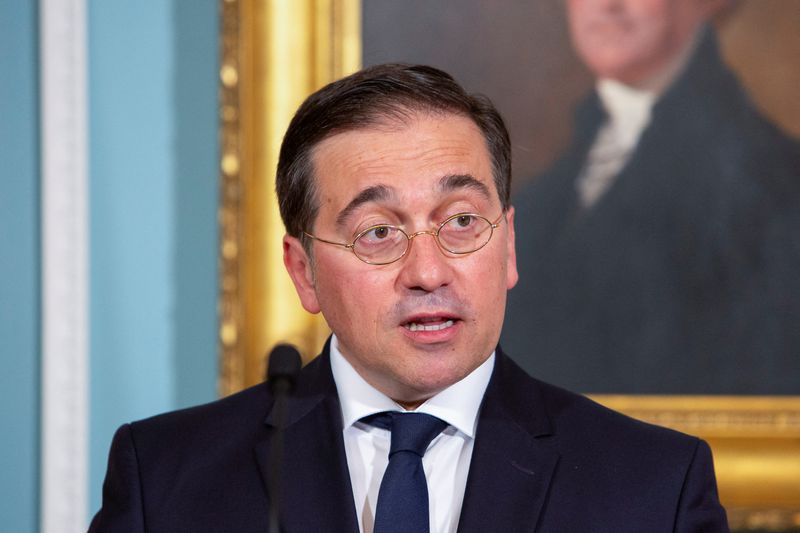MADRID/OSLO (Reuters) - The foreign ministers of several Muslim and European countries will meet in Madrid on Friday to discuss how to implement a two-state solution to the Israeli-Palestinian conflict, the Spanish and Norwegian governments said.
Spanish Foreign Minister Jose Manuel Albares will host the meeting, which will be attended by his European counterparts, European Union foreign policy chief Josep Borrell, and members of the Arab-Islamic Contact Group for Gaza.
The two-state solution set out in the 1991 Madrid Conference and the 1993-95 Oslo Accords has long been seen by the international community as the best way to settle the decades-long conflict, but the peace process has been moribund for years.
However, the search for a peaceful solution has been given new urgency by the 11-month-long war in the Gaza Strip between Israel and the Palestinian militant groups Hamas - the bloodiest episode yet in the overall conflict - as well as escalating violence in the occupied West Bank.
On May 28, Spain, Norway and Ireland formally recognised a unified Palestinian state ruled by the Palestinian Authority comprising the Gaza Strip and the West Bank, with East Jerusalem as its capital. With them, 146 of the 193 member states of the United Nations now recognise Palestinian statehood.
Albares hosted a diplomatic meeting with the Gaza Contact Group on May 29 in which participants discussed the next steps towards actively implementing the two-state solution.
Spanish Prime Minister Pedro Sanchez has repeatedly described the co-existence of two sovereign states on the territory of the former Mandatory Palestine as the only viable path to peace in the region.
The West Bank, including East Jerusalem, was captured by Israel in the 1967 Middle East war and has been occupied ever since, with expanding Jewish settlements complicating the issue. Israel annexed East Jerusalem in 1980 in a move generally not recognised internationally.
Israel also says guarantees on its security are of paramount importance.
In an interview with Reuters, Norwegian Foreign Minister Espen Barth Eide said Palestinian Prime Minister Mohammad Mustafa would attend the meeting in Madrid.
Issues that need resolving, Barth Eide said, include the "actual establishment of the Palestinian state or a very credible path to it" and the strengthening of Palestinian institutions.
They also included the demobilisation of Hamas - which controlled Gaza prior to the war - "so that they're out of business as a military actor".

The normalisation of ties between Israel and some other states, notably Saudi Arabia, was also important for Israel, he said.
The Gaza Contact Group - an initiative of the Arab League and the Organization of Islamic Cooperation - includes countries such as Egypt, Saudi Arabia, Qatar, Jordan, Indonesia, Nigeria and Turkey.